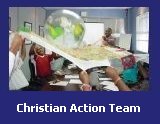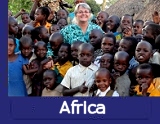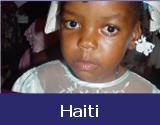 |
Contact usUnited Caribbean TrustConservation - landIn memory ofConservation - sea
Endangered species
Turtle stories |
home >> caribbean >> caribbean
ecotourism>> caribbean
conservation>>
The Gaia Foundation Permission requested to use information from the Gaia Foundation websiteThe Gaia Foundation is committed to cultural and biological diversity, ecological justice and Earth democracy.We provide a European base and facilitate the work of community and indigenous groups, non-government organisations and field projects, and policy-makers in Africa, Asia and Latin America. Activities include: • Support to pioneering people and projects; strengthening local community capacity for self-reliance, diversity-rich livelihoods and biodiversity protection. The Gaia Foundation provides organisational support, capacity building, information and access to funding for Associates and partner organisations. We work closely with partner organisations, in Africa, Latin America and Asia, and are directly involved in a number of field programmes. Gaia is privileged to support a range of innovative projects and partner organisations, working in different thematic and regional areas for the protection and enhancement of cultural and biological diversity. A particular strength has been to find seed funding for new initiatives, and to assist groups or regions to develop common strategies and strengthen coalitions. The Green Belt Movement in Kenya, founded by Prof. Wangari Maathai in 1982, involves over 100,000 members from mainly women’s groups and local communities. Environmental protection and tree planting activities are used as an entry-point for wider issues such as food security, alternative income-generation and conflict resolution. A pan-African Green Belt Movement links with groups in Tanzania, Uganda, Ethiopia, Rwanda and other African countries, to establish similar initiatives, provide capacity building and seed funding. Women for change Location: Kenya and East Africa Implementing NGOs: Green Belt Movement (Kenya), Gaia (UK) Women for Change works directly with girls and women: it provides school fees and training in HIV prevention and drug abuse; covers litigation representation in Court to empower women to stand up for their rights; and supports practical initiatives such as the provision of clean drinking water and income generation. The programme offers a holistic approach to the needs of women and girls, targeting those who are negatively affected by poverty. Through the Green Belt Movement, civic and environmental education is provided for 600 women’s networks, involving 6,000 women’s groups. The programme puts emphasis on advocacy as the principal vehicle for securing women’s rights, and supports coalition building and alliances at local and national levels. Exchange visits between women’s groups of different regions and ethnicity enable the sharing of experiences in tree planting, food security, water harvesting, advocacy, civic education. Education materials are translated into local languages and pictures where necessary.The Institute for Sustainable Development in Ethiopia, founded by Dr. Tewolde Gebre Egziabher and Sue Edwards, provides a forum on sustainable development, community rights and biosafety. Field projects include the promotion of traditional techniques for sustainable agriculture and water harvesting. Sustainable Livelihoods for Youth Location: Ethiopia (especially Addis Ababa, and regional capitals) Implementing NGOs: Institute for Sustainable Development (Ethiopia), Gaia (UK) Since 1997, the Institute for Sustainable Development (ISD) in Ethiopia has worked with a number of youth groups and school environment clubs in and around Addis Ababa, and learning about the needs and interests of young people in combating poverty and urban challenges. This work has developed into a programme to support groups of youth (especially disadvantaged young persons) to gain practical skills such as composting and water harvesting, and to grow vegetables, herbs and spices, and common medicinal plants to take care of the nutritional and basic health needs of themselves, their families and the community. ISD provides skills training and environmental awareness with 20 high schools, 1 primary school, and 5 ‘kebele’ youth groups. There are many inspiring examples of youth action, with youngsters cleaning up and making vegetable and flower gardens in areas previously used for dumping waste, and prompting neighbouring ‘kebele’ (youth groups) to organise income generation schemes for growing cut flowers and vegetables. A particular focus is on recuperating and re-valuing cultural knowledge that is related to biodiversity protection.Fundação Gaia was established by the Brazilian agronomist and environmentalist, José Lutzenberger, in 1987, for the promotion of sustainable development based on a Gaian, holistic ethic. Its mission is environmental education and promotion of soft, socially compatible technologies. Regenerative Agriculture and Environmental Education Location: Porto Alegre, Brazil Implementing NGOs: Fundação Gaia Rincão Gaia (Gaia Corner) is a 30 ha piece of land, 120 km away from Porto Alegre which was turned into a centre for education in sustainable development, with practical activities in regenerative agriculture, natural animal rearing and ecological landscaping for demonstration purposes. It plays a vital role in demonstrating, experimenting and promoting Fundação Gaia’s mission; it provides a site and learning centre for the practice and demonstration of alternatives. Weekend courses are provided in environmental education and sustainable living; also capacity building in regenerative agriculture. Fundação Gaia is working to develop more learning opportunities, including eco-tourism and residential courses, and to widen its outreach. A “Lutz Legacy” will be established in 2005, to support bi-annual conferences and the promotion of regenerative agriculture. |


 


|
| Copyright © 2022 www.UnitedCaribbean.com. All rights reserved. Disclaimer Click to Contact us |